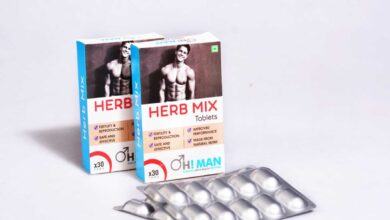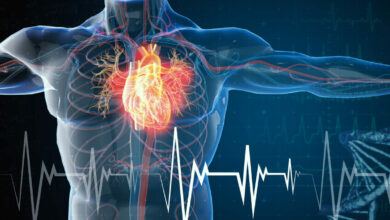Health and Medical
How to treat Vitamin D deficiency

What is vitamin D?
The sun nutrient is a trendy issue right now. We may have discovered recently that either you or somebody you know an inadequate amount of vitamin D in their body. If people never had a problem beforehand and think nothing has altered to make this an issue now, it might be alarming. The fact is that the majority has altered, and vitamin D deficiency and inadequacy is now a worldwide social issue afflicting an estimated one billion individuals. If you want to know in detail about its requirement and benefits in your body, click on this URL.
What are the vitamin D requirements?
Just 20% of the vitamin D is supposed to come through our food, while the other 80% coming from Ultraviolet exposure to the sun on our body. There are now two sets of Vit D consumption recommendations. The Institute of Medicine usually establishes vitamins recommendations in the type of Recommended Dietary Allowances or acceptable consumption (AI). The RDA is the daily average consumption necessary to improve the nutritional status of almost all (97.5%) healthy people. These recommendations were developed using a population model to avoid vitamin D insufficiency in the general public, depending on bone strength.
What is the treatment for a vitamin D deficiency?
The level of vitamin D required to treat a deficit is determined by the degree of the deficit as well as your personal medical history. Your requirements will be influenced by the season. For example, if your haemoglobin levels drop and you’re moving into the wintertime, you’ll need a little more than if you’re coming into the summertime and plan on spending a moment in the sun. Everybody plans to bring their stocks to a healthy level and keep them there using a maintenance program. Vitamin D3 is the greatest vitamin to use. Vitamin D2 which are considered the best calcium and vitamin d supplement in India, don’t raise your concentrations as much as D3, often said to be the best vitamin d tablets in India do, and even in some circumstances, they’ve been shown to lower levels over time. Because natural supplies of vitamin D2 are limited, most studies have relied on D3 as the best vitamin d supplement in India.
Vitamin D pills should be consumed with a fat-rich diet. According to research, whether consumed on an empty belly contrasted with a fat-containing diet, the fat-containing dish provided 32 per cent greater vitamin D retention. The percentages fluctuated from 10% to 50%. Even a ten per cent drop can influence vitamin levels. Ones who got their supplementation with their heaviest meal (usually it’s the one with the greatest fats) had their blood glucose levels rise by a mean of 56.7 per cent in 3 months, according to a study conducted. Many supplementations could be consumed once a day, once a week, or once monthly. It’s all a matter of personal preference and, more significantly, which one you’re more inclined to choose. When you’re deficient, it’s a good idea to get your blood checked 3 to 4 months after you start taking the best vitamin d supplement in India to make sure the counts are improving. Consult your doctors to determine the best course of action for you.
What are the symptoms of a vitamin D deficiency?
Vitamin D insufficiency can be caused by a lack of solar exposure, poor skin production, a lack of vitamin D in daily food, and other factors that can impact it, such as digestive diseases, respiratory illness, and viral infections.
- Melanin is the pigment that gives the body its colour. Melanin levels are lower in light-skinned individuals than in darker-skinned people. Melanin absorbs UV-B light from the sun that reduces the skin’s ability to generate vitamin D3 by 95%. Dark-skinned people have inherent protection from the sun and need three to four times the amount of exposure to the sun to produce the same amount of vitamin D as someone with fair skin.
- One could be at risk for vitamin D deficiency if you are significantly obese or overweight. Obese people had 35 per cent greater rates of vitamin D deficiency than normal-weight participants and 24 per cent higher rates than overweight subjects, according to a recent evaluation of 23 research. While nutrition and reduced exposure to sunlight may have a role to play, there seems to be an elevated demand that cannot be addressed without the assistance of a supplement.
- Least exposure to sunlight, we may look out our door and notice the sunlight shining and assume that we are protected from this deficiency, but it’s not always the case. Even in tranquil surroundings, vitamin D insufficiency is becoming more common. We’ve all read about the risks of skin cancer as well as the importance of using sunscreen to prevent it.
Many people are unaware that there are such things as too much vitamin D because there have never been any cautions about taking too much vitamin D from sunlight. Excessive vitamin D can be harmful to your health, but it can only occur if you take too many pills. The level of vitamin D required to treat a deficiency is determined by the degree of the deficiency as well as your personal medical history. Your requirements will be influenced by the season. To acquire the best vitamin D tablets, click on this URL.





